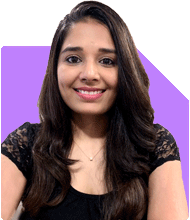Ramalingam Kalirajan |8068 Answers |Ask -Follow
Mutual Funds, Financial Planning Expert - Answered on Jun 04, 2024
He has an MBA in finance from the University of Madras and is a certified financial planner.
He is the director and chief financial planner at Holistic Investment, a Chennai-based firm that offers financial planning and wealth management advice.... more

My husband(36yrs) and I (32 yrs) are government employees but do not have pension. We fall under CPS scheme. We have an own house built this year but the loan goes for 45 lakhs for 15 years. We are investing 5k in mutual funds and 1 lakh in SSA yearly. Since we have put all savings in land purchase to build the house, we do not have any other savings. Our combined monthly income is 1,65,000. How can we built wealth of 5 crore for retirement in 60 years and for two children’s education in 13 years from now.
You and your husband have a combined income of Rs. 1,65,000 per month. You are investing Rs. 5,000 in mutual funds and Rs. 1,00,000 annually in the Sukanya Samriddhi Account (SSA) for your daughters.
Income and Expenses:
Combined Monthly Income: Rs. 1,65,000
Home Loan EMI: Assuming an interest rate of 8%, your EMI for Rs. 45,00,000 over 15 years would be approximately Rs. 43,000 per month.
Day-to-Day Expenses: Let’s assume monthly household expenses are Rs. 70,000.
Savings: Rs. 5,000 in mutual funds monthly and Rs. 1,00,000 annually in SSA.
Establishing Financial Goals
You have two main financial goals:
Retirement Corpus: Rs. 5 crore by age 60.
Children's Education: Required in 13 years.
Calculating Required Investments
Retirement Corpus:
To accumulate Rs. 5 crore in 28 years (for you) and 24 years (for your husband), you need to invest regularly in equity mutual funds.
Using an assumed annual return of 12%, let's calculate the required SIP.
Children's Education:
You need funds for education in 13 years. Assume an education corpus of Rs. 1 crore.
Using an assumed annual return of 12%, let's calculate the required SIP.
Current Savings and Investments
You are already investing Rs. 5,000 in mutual funds and Rs. 1,00,000 annually in SSA. However, this needs to be increased to meet your goals.
Adjusting Monthly Budget
After accounting for your home loan EMI and expenses, you have Rs. 52,000 available for investments.
Suggested Investment Strategy
1. Increase SIP in Mutual Funds:
Equity mutual funds provide higher returns over the long term. Increase your monthly SIP to Rs. 40,000.
2. Children’s Education Fund:
Invest Rs. 12,000 per month in a dedicated mutual fund for education.
Detailed Financial Plan
1. Retirement Planning:
Increase your SIP to Rs. 40,000 in diversified equity mutual funds.
Consider a mix of large-cap, mid-cap, and multi-cap funds for diversification.
2. Children’s Education:
Invest Rs. 12,000 per month in equity mutual funds dedicated to education.
Use a combination of SIPs and lumpsum investments when possible.
3. Emergency Fund:
Maintain an emergency fund of at least 6 months of expenses (Rs. 4,20,000).
Use liquid funds or a savings account for easy access.
4. Insurance:
Ensure adequate term insurance cover for both you and your husband.
Health insurance coverage should be sufficient for all family members.
Professional Guidance
Seek advice from a Certified Financial Planner (CFP) to tailor your investment strategy.
Regular Review and Rebalancing
Review your investments annually and rebalance to maintain your asset allocation.
Tax Planning
Invest in tax-efficient instruments like ELSS funds, PPF, and SSA to maximize post-tax returns.
Long-Term Commitment
Focus on long-term investments to achieve your goals. Regular and disciplined investing is key.
Conclusion
With disciplined investing and a clear strategy, achieving your financial goals is attainable.
Best Regards,
K. Ramalingam, MBA, CFP
Chief Financial Planner
www.holisticinvestment.in
You may like to see similar questions and answers below
Ramalingam Kalirajan |8068 Answers |Ask -Follow
Mutual Funds, Financial Planning Expert - Answered on May 08, 2024
Ramalingam Kalirajan |8068 Answers |Ask -Follow
Mutual Funds, Financial Planning Expert - Answered on Aug 22, 2024
Ramalingam Kalirajan |8068 Answers |Ask -Follow
Mutual Funds, Financial Planning Expert - Answered on Jul 11, 2024
Dr Upneet Kaur |15 Answers |Ask -Follow
Marriage counsellor - Answered on Mar 03, 2025
Dr Upneet Kaur |15 Answers |Ask -Follow
Marriage counsellor - Answered on Mar 03, 2025
Dr Upneet Kaur |15 Answers |Ask -Follow
Marriage counsellor - Answered on Mar 03, 2025
Niharikka Budhwani |13 Answers |Ask -Follow
Dietician, Lifestyle, Nutrition Expert - Answered on Mar 03, 2025
Ramalingam Kalirajan |8068 Answers |Ask -Follow
Mutual Funds, Financial Planning Expert - Answered on Mar 03, 2025
Nayagam P P |4255 Answers |Ask -Follow
Career Counsellor - Answered on Mar 03, 2025
Nayagam P P |4255 Answers |Ask -Follow
Career Counsellor - Answered on Mar 03, 2025
Nayagam P P |4255 Answers |Ask -Follow
Career Counsellor - Answered on Mar 03, 2025
Nayagam P P |4255 Answers |Ask -Follow
Career Counsellor - Answered on Mar 03, 2025
Nayagam P P |4255 Answers |Ask -Follow
Career Counsellor - Answered on Mar 03, 2025
























